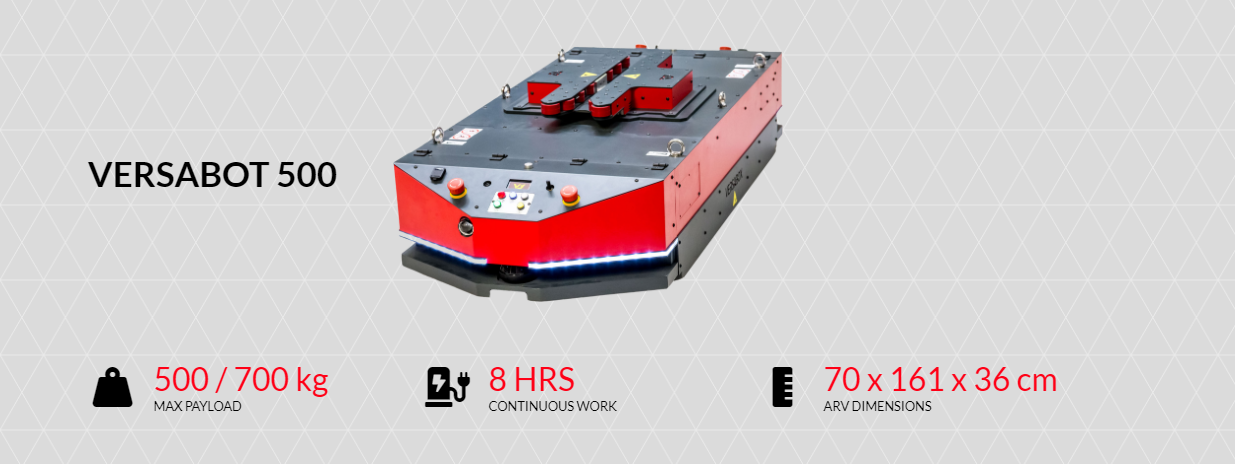The word startup has been making a staggering career in recent years. It actually means a company – an experiment. Innovation is the key element for a startup. More and more often, we meet with exciting projects in logistics and transport. VersaBox is one of the Polish startups. Its creators set themselves the task of creating an intelligent machine helpful in internal transport. See if they managed to accomplish this.
The history of the company began a few years ago, with a company founded by the employees of the Warsaw University of Technology. This is where Jakub Michalski (PhD at the Faculty of Materials Science), co-founder and president of Versabox, worked. Rafał Chojecki, a graduate of the Mechatronics Department of the Warsaw University of Technology, became the second partner. The company won the tender to create a so-called mobile platform, i.e. a mobile warehouse robot.
In essence, these are autonomous vehicles that can efficiently transport goods from one place to another, bypassing obstacles on the road.
The underlying problem of Polish companies is the lack of a sufficient number of qualified staff, as well as a high staff turnover – says Jakub Michalski when asked about the motives behind the decision about this and not another profile of the company’s activity.
In essence, therefore, it is not only about a simple, maintenance-free means of transport but about a complementary system of cooperating elements. Autonomy Work, because that’s how the solution prepared by VersaBox is called, consists of hardware, software and the vehicle itself. The whole system has been configured so that it can to cooperate with other solutions used in the industry (e.g. WMS).
How it’s working?
Well, the software that has been developed, together with the appropriate sensors that the robot is equipped with, allows positioning the robot, then mapping the route, moving the device in a given space and also bypassing obstacles (preventing accidents).
Small carts, loaded with goods (raw materials, components, finished products) move around the warehouse or production warehouse. Although there are no drivers in the vehicles, they can efficiently avoid people encountered along the way, noticing any other obstacles. It is enough for an employee to load a given product on a specific trolley and indicate where to go, and the vehicle will do the work assigned to it.
The system has been implemented in a dozen or so recipients in Poland, the Czech Republic and recently also in France.
These are both manufacturing and logistics companies. There are many more potential customers. Jakub Michalski talks about approx two hundred interested entities, practically all over Europe.
Benefits for users are evident ( practice shows that the average return on investment happens after approx. 11 months. Shorter time needed where labour costs are higher). In each case, the autonomous transport system in warehouses and industrial buildings simplifies not only transport of goods from A to B, but also loading and unloading of goods in specific places of the warehouse or the production hall (earlier this work was performed using forklifts or muscle strength).
Thanks to our solution, transport in such places can become wholly automatic and autonomous, and these tasks will not have to be performed by a human being. This allows people to get rid of certain activities and they can work in other places where human skills are more important – emphasizes Jakub Michalski.
The head of VersaBox also draws attention to another essential aspect of the issue, namely work safety. Forklifts moving among people are a threat. And as statistics show, the same process carried out using autonomous mobile robots is much safer. In practice, therefore, no collision event caused by the autonomous transport robot occurred.
VersaBot 500 – basic trolleys of the Autonomy Work system have standard dimensions: 70 x 161 x 36 cm. The maximum load capacity is 500-700 kg (depending on the version). Fully charged batteries are sufficient for at least 8 hours of effective work. A vehicle with an almost discharged battery goes to the charging station on its own.
Photo: VersaBox









